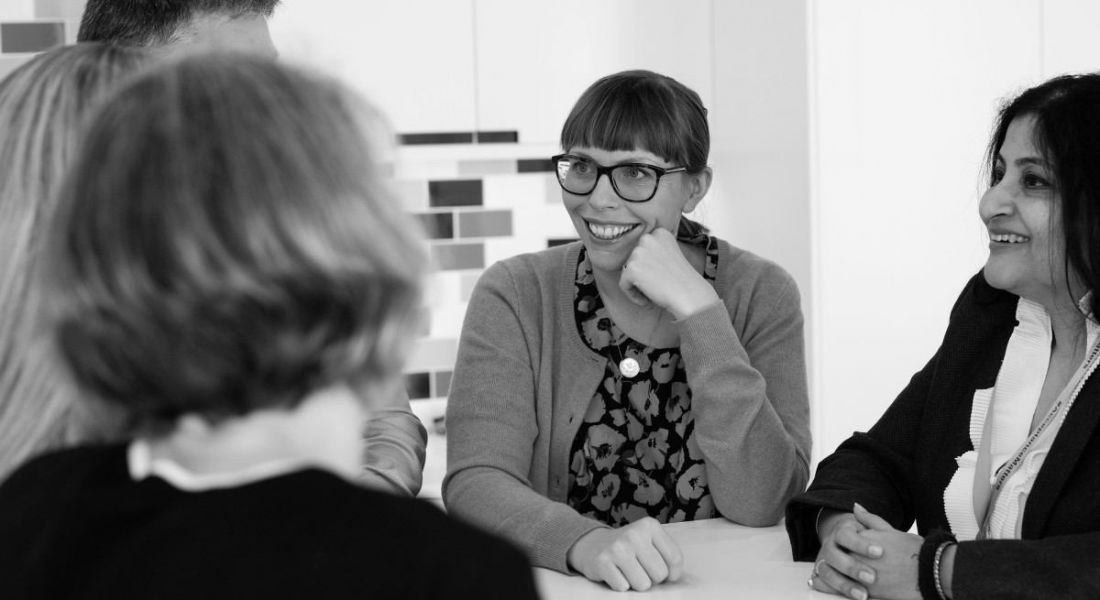Gary Lawson from Mastercard Ireland explains how his company devised a returnship programme to tackle an alarming drop-off of professional women mid-career.
According to a 2008 Harvard Business Review study, more than half (56pc) of women in science, engineering and technology leave their employers at the mid-level point in their careers. To me, that’s an astounding statistic. We’re losing more than half of female talent in crucial sectors to the economy, just halfway through their careers.
Of that 56pc, a quarter (24pc) of women in technology take a non-technical job in a different company, 22pc become self-employed in a technical field and 10pc leave the workforce completely.
Irish companies are missing out on a huge amount of tech talent at a time when there is an acute shortage of technology specialists. The 2017 HRD Pulse survey from PwC found that the greatest talent shortages are in the areas of IT, data analytics, risk and finance.
Stalling halfway
If we assume the mid-way point is generally when women may have a child, looking at those statistics, it suggests there’s a problem with continuing on their career trajectory if and when they return to work.
That 24pc take a non-technical job in a different company suggests a worrying cause: women find it difficult to return to work at the same level as when they left. Figures from PwC back this up. It found that three in five professional women returning to the workforce are likely to move into lower-skilled or lower-paid roles, experiencing an immediate earnings reduction of up to a third.
This matches anecdotal feedback we’ve had from returners. Many told us that when they tried to find a job at the same level after a career break, they’d been asked to take a pay cut, or weren’t put forward for roles by recruiters as they were seen as too much of a risk.
But, far from becoming deskilled, returners tell us they’ve actually picked up a huge amount of experience while away from the workplace. Some have taken leadership roles at their children’s schools, volunteered, become non-executive directors or have developed hugely beneficial interpersonal skills while being a caregiver.
Relaunching careers
Returnships may well be the answer, demonstrating benefits for those taking part and for the organisations that run them. A returnship is often described as a higher-level internship, and is designed to help women (and men) get back into senior roles after an extended career break. It’s often a fixed-term contract between three and six months, with the possibility of a permanent role at the end of the programme.
Returnships are an important way we can start to eradicate the fear of taking time out, and utilise the huge talent pool out there that is largely untapped. As more companies invest in returnships, I hope more women and men will be encouraged to take a career break or share parental leave, knowing their skills and experience will be valued by potential employers when they are ready to return.
From a personal perspective, I’m so thrilled to be immersed in this as both a committee member of the Women’s Leadership Network at Mastercard and as part of my day job. As a husband and father, I’m also keen to provide a male viewpoint, and I can really relate to the challenges people face juggling work and home.
When we opened applications for Mastercard Ireland’s first returnship last year, we were contacted by many highly skilled and talented individuals looking to return. We’ve just welcomed three returners to our Dublin office, and they’re already making a big impact.
Andrea Crofts, who recently joined us on our first returnship programme in Dublin, said: “Initially, I was apprehensive about returning to work in the IT sector but, since I’ve started my placement at Mastercard, I’ve found that a lot of my IT skills are still relevant. I took part in the Women ReBOOT programme, which really refreshed my existing experience. The collaborative work environment at Mastercard has also greatly helped.”
And Nicky King, who joined Mastercard’s first returnship in London, said: “I was worried that it would take me a while to get back into the swing of it, but I found that as soon as I started, I was able to utilise the skills and experience I’d built up. Just because you’ve had a bit of time out, it doesn’t mean you’re any less worthy in the work environment. You’ve got a great number of skills that you can tap into immediately.”
Flexibility is the new normal
Returnships can’t just stand alone. They work best when part of a wider focus on gender balance at all stages of an organisation. This includes creating a flexible culture where employees can integrate work with their personal life, especially when it comes to raising a family. Whether that’s allowing employees to work from home (and providing them with the technology to do so effectively), offering part-time work or job shares, or even stipulating that flexible working must be on each job description, there’s a range of ways companies can structure themselves to get the best from their employees.
‘All too often, companies bemoan the lack of gender balance yet fail to put the structural foundations in place which enable people with families and caring responsibilities to thrive’
– CIARA GARVAN
Fed up with an exhausting commute and trying to juggle work and family life, Ciara Garvan founded WorkJuggle, a platform that connects companies that offer flexible working directly with highly skilled candidates. “The offer of flexible work as an intrinsic part of a returnship programme demonstrates a company which is serious about gender balance,” said Garvan.
“All too often, companies can bemoan the lack of gender balance and yet fail to put the structural foundations in place which enable people with families and caring responsibilities to thrive in the workplace.”
It’s important companies take advice from others, and we’ve spoken to other organisations when it comes to how our returnship is structured, the training and support available, and the duration. We also check in regularly with other organisations’ women’s networks, and bring in speakers to give us ideas about our working culture and diversity.
The gender gap is a problem across all industries, and it’s one that can only be solved if the private and public sector work together to fix the systemic issues that are holding women back. Creating a returnship programme is a good start.
By Gary Lawson
Gary Lawson is global talent acquisition lead at Mastercard Ireland and a committee member of the company’s Women’s Leadership Network.
To coincide with the week of International Women’s Day, Mastercard Ireland’s Women’s Leadership Network will host a networking breakfast on Tuesday, 6 March 2018 at Dogpatch Labs, Dublin. The theme of the event is ‘Relaunch your Career’ and it will discuss the value of returnships with speakers including Ciara Garvan, founder of WorkJuggle; Sue Marshall, CEO of Abodoo; and recent returners to the workplace. This event is now sold out, but Silicon Republic will be covering all of the action.




